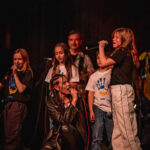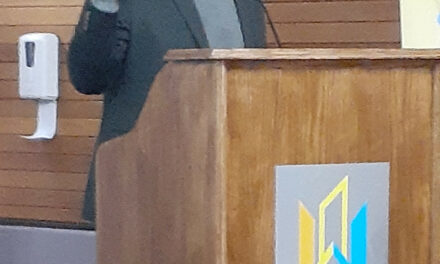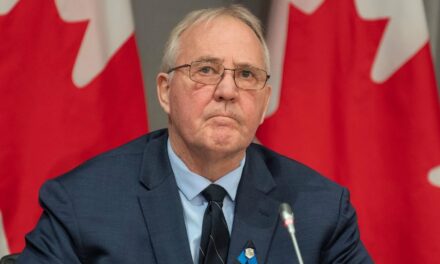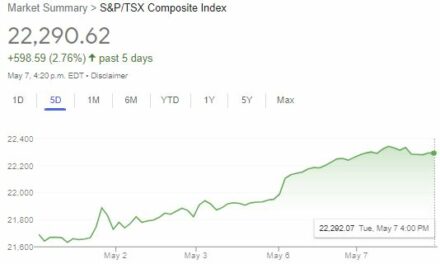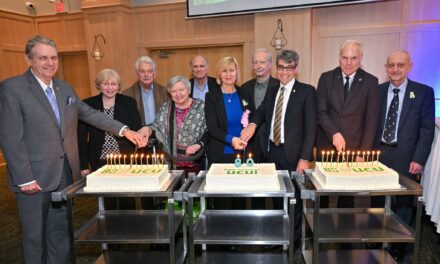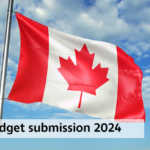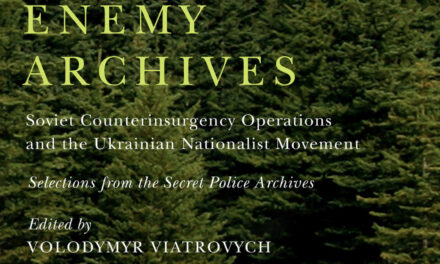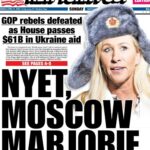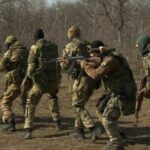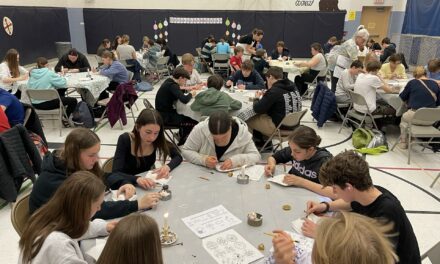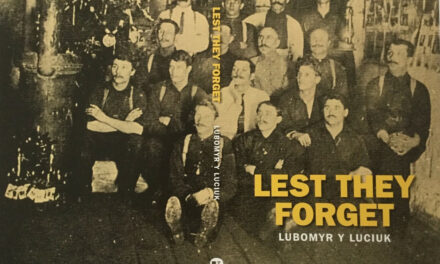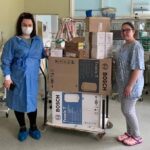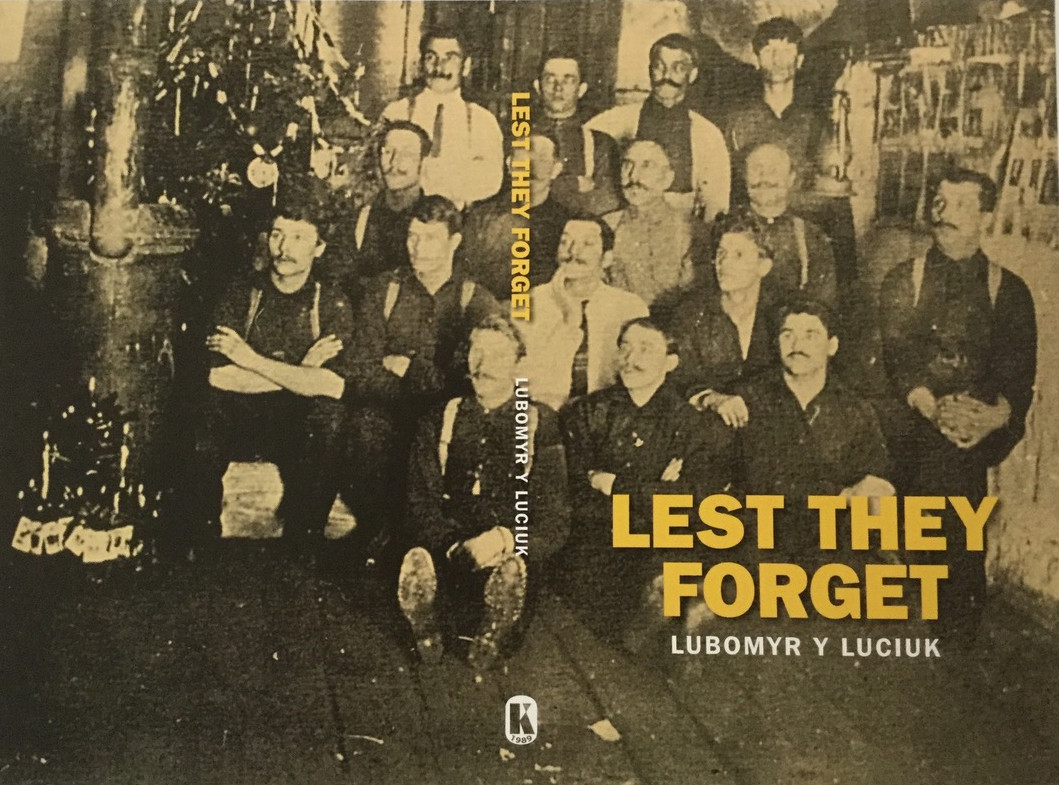Lev Romanyshyn for NP-UN.
The week of August 20th, 2023 was another busy seven days for the Ukrainian hromada in Vancouver, starting with an emotional “low”, followed by a couple of “highs” to finish things off. On Sunday August 20th, the Ukrainian, Polish, Lithuanian, Latvian and Estonian communities gathered in downtown Vancouver at the Jack Poole Plaza to commemorate Black Ribbon Day, which officially is held annually on August 23rd. Then on August 24th, we celebrated Ukrainian Independence Day and a couple of days after that we held a Ukrainian Independence Day picnic in Stanley Park.
Black Ribbon Day in Canada is officially known in the EU by the far more descriptive title, “European Day for Remembrance for Victims of Stalinism and Nazism” The date, August 23, is significant in that that was the day in 1939 that the Foreign Ministers of fascist Nazi Germany and the communist Soviet Union, Joachim von Ribbentrop and Vyacheslav Molotov, respectively, signed a non-aggression pact in which each country agreed not to ally themselves with an enemy of the other nation. That was the public document. But there was also a Secret Protocol to the Molotov-Ribbentrop Pact in which the two aggressor nations agreed to the borders around their respective spheres of influence: i.e., Poland, Finland, Lithuania, Estonia, Latvia and Bessarabia (parts of modern day Moldova, Romania and Ukraine). Hence the representation from Poland and the 3 Baltic nations at the commemoration. (The Secret Protocol only became public during the Nuremberg Trials following WWII.) Joining the demonstration were representatives from the local Hong Kong and Taiwanese communities, whose homelands are now experiencing similar brutality, repression and threats as our own ancestral homelands did from the Nazis and Communists.
For this participant, the most significant moment during the afternoon’s proceedings was the talk by the Lithuanian community president, Aljis Jaugelis. Unlike my friend, Vlodko Kish, whose works you have been reading in these pages for many years, I have not been a particularly avid student of history. So, when Mr. Jaugelis spoke about The Baltic Way, it was eye-opening. Even though I was a working adult at the time of The Baltic Way, I had either not heard of it or had forgotten about it. However, it was a very significant turning point in modern history. On August 23, 1989, 50 years after the signing of the Molotov-Ribbentrop Pact, nationalist-minded activists in the soviet republics of Lithuania, Latvia and Estonia organized a peaceful protest against their soviet masters, both local and those in Moscow, in which some 2 million people stood on the highway running through all 3 Baltic capital cities and linked hands in an unbroken chain almost 700 km long from one end to the other. This became known as The Baltic Way. A consequence of The Baltic Way was that, less than 7 months later, Lithuania became the first soviet socialist republic to declare independence from the Soviet Union. While other events over the years had been eroding the strength and will of the Soviet Union and its leadership, The Baltic Way and Lithuania helped push things over the precipice such that less than 2 years after The Baltic Way, Estonia and Latvia also declared independence from the USSR on August 20 and 21, 1991 respectively. And, as Joe Cocker and The Beatles might have put it, “With a Little Help From My Friends”, Ukraine followed suit mere days later on August 24, 1991.
To commemorate this historically important protest movement, the organizers of the Vancouver demonstration staged a metaphorical Baltic Way on the Jack Poole Plaza grounds, but with two significant differences: rather than a single unbroken chain, we all held hands in concentric circles and at the centre of the circles stood a local Ukrainian community leader, Mirko Petriw, holding a large Ukrainian flag. The citizens of Poland and of these three Baltic countries clearly understand what it is that Ukrainians have been fighting for since 2014 and especially in the last year and half and they have been among our strongest friends and supporters.
Why is Black Ribbon Day important? I’ll let the words of the European Commission president, Ursula von der Leyen answer that, “the painful memory of the past is not just a distant recollection, but has found an echo in Russia’s illegal and unjustified war against Ukraine. Today more than ever, we stand united against the Russian state-controlled propaganda that distorts history, spreads conspiracy and punishes those who oppose it. … And we will ensure that those who stood against totalitarianism will not be forgotten”. “…I invite you to re-read Ms. von der Leyen’s first sentence and then return here to continue on to where I’ve pasted in a couple of excerpts from Wikipedia: “From the onset, Black Ribbon Day was attacked by the Soviet government in the 1980s. The Soviet Union continued to deny the events of 23 August 1939 and the secret protocol of the Molotov–Ribbentrop Pact’’ and then, here’s the beginnings of the “echo”: “Vladimir Putin’s government has vehemently attacked Black Ribbon Day, and the Russian government delegation walked out when [in the summer of 2009] the OSCE adopted the Vilnius Declaration [which condemned Nazi and Stalinist totalitarianism] in support of the [August 23rd] remembrance day”. The nations of the EU stand together to commemorate this dark event, as do Canada, the USA, the Meijis of the Crimean Tatar People and the World Jewish Congress. Clearly, this psychopathic, modern day Stalin feels the world’s collective reproach directed at him, both as a strong condemnation of his idol, for his many past evils, and as a well-deserved symbolic poke in his own eye, for his own many current evils, which he has needlessly inflicted on Ukraine.
Ironically, commemoration of one of the low points in recent history is juxtaposed with the celebration of one of our ancestral homeland’s high points: the Ukrainian Declaration of Independence on August 24, 1991. Under the auspices of the Ukrainian Canadian Committee (UCC) of Vancouver, and echoing the Baltic Way, the Ukrainian Canadian Advocacy Group (UCAG) organized a human chain on Vancouver’s busy, downtown Burrard Street Bridge to commemorate Ukraine’s Independence Day. During rush hour on August 24th on the bridge’s sidewalk, participants, many draped with Ukrainian flags, stood shoulder to shoulder and linked hands to span the entire length of the bridge, some 900 metres. Commuters honked their horns in support and passersby shouted words of encouragement.
Two days later, on the edge of Third Beach in Vancouver’s famous and beautiful Stanley Park, UCC organized a picnic to celebrate Independence Day. Around the perimeter of the forest’s clearing, booths were set up where one could buy various Ukrainian handicrafts (embroidered blouses, dresses and shirts), beadwork, art prints, honey and beeswax products and of course, holubtsi, varenyky and kobassa. It was a beautiful and warm day and an icy cold Lvivske or Obolon would have gone down wonderfully, but, alas, BC’s and the city’s antiquated liquor laws precluded that. Ale menshy z tym (But anyway). And the youngsters weren’t left out either: they had a special table set up for them where they could create their own works of craft art.
Yulia Shokalyuk and Maria Hahalovska MC’d the short program in which UCC Vancouver President Elvira Mruchkovska addressed the crowd of several hundred attendees, as did UCAG co-founder Adrian Petriw, Olena Skorohod of the United Way BC and Fr. Mykhailo Ozorovych of the Holy Eucharist Ukrainian Catholic Cathedral in New Westminster, who also gave a blessing to the attendees.
Then, a little later in the afternoon, under the leadership of Eugene Kardashynskyi, the choral colectiv Kolo, to the delight of the assembled crowd, performed several songs, both traditional and modern. “Kolo”, or circle, is one of the world’s most widespread and universal symbols and commonly represents unity, wholeness, and infinity. In keeping with this symbolism, Kolo typically performs its songs while standing in a circle, although, for concert-type presentations, they will open it up into a semi-circle. Most of their songs are sung a capella, although occasionally one of the members will gently keep beat on a drum. Kolo has a unique sound and style which is attracting new members and followers and we hope that they will continue to grow and flourish in our hromada.
The afternoon’s event was a casual affair: people mingled, picnicked, checked out the booths, listened to the short speeches and greetings, and later to Kolo’s songs, and some even took advantage of the proximity to the beach. Of course, it was important to celebrate such a momentous occasion in Ukraine’s history – Ukraine’s Independence Day – but the organizing committee purposely designed it to be low-key, given the current situation in Ukraine. In this participant’s opinion, they struck a good balance between honouring the occasion while keeping things at a somewhat subdued level. All-in-all it was a very successful Independence Day picnic and certainly ended the busy week on a much higher emotional note than it had begun.
Share on Social Media



